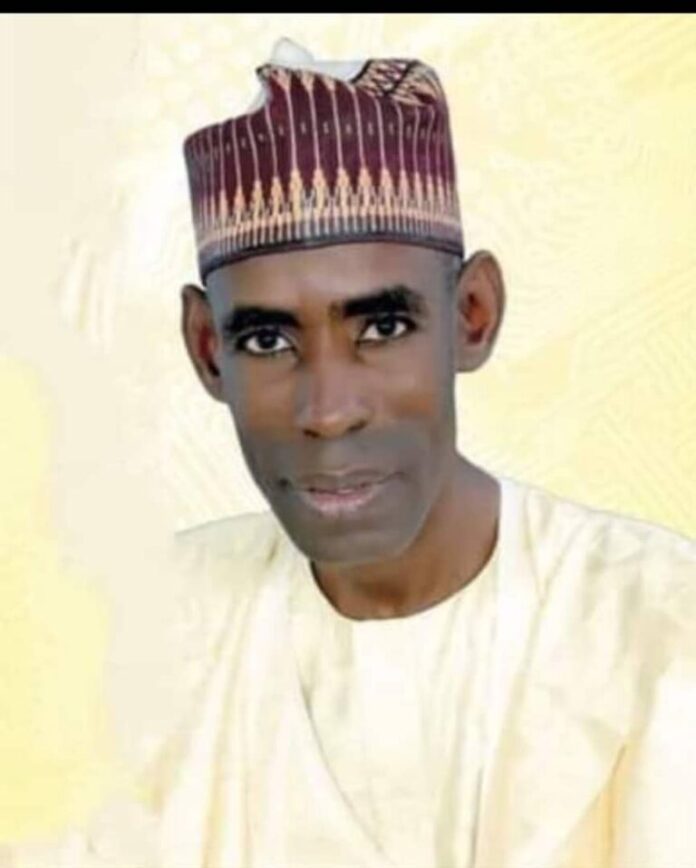Re: A word in favour of ‘Native Authority’ (II), by Engr. Bello Gwarzo Abdullahi, FNSE
In a contemporary Nigeria where stereotyping is prevalent, Ambassador Usman Sarki’s eloquent discourse on the aforementioned issue which is published in Daily Trust of Wednesday 12 March 2025 makes an interesting reading.
But the stereotyping may not allow a level of informed feedback from the public. Nevertheless, this does not diminish the persuasiveness and pertinence of the issues raised therein. It is widely acknowledged that regardless of a country’s level of development, culture, religion, and tradition invariably wield significant influence over people’s lives.
Constitutional reforms have been implemented over the years in response to various demands and to streamline the functions of traditional institutions.
In the Northern region, the concept of indirect rule introduced by Lord Lugard led to the establishment of the ‘sole native authority’ system. This system endured for a period until demands for reforms were advocated to safeguard it against abrupt alterations by emerging elites. The last of these reform is encapsulated in the “Dasuki Local Government Reforms.”
The issues highlighted by Ambassador Usman are as follows:
(I) Challenges to Traditional Systems: Critics of the traditional authority system in Nigeria have deemed it antiquated and irrelevant, yet such assertions lack empirical support.
Despite accusations of conservatism and exploitation, the enduring significance of the traditional system remains unsubstantiated, breeding skepticism towards its disparagement. For instance, in rural communities, traditional leaders play a vital role in conflict resolution, preserving cultural heritage, and ensuring social cohesion.
In a specific instance, during a land dispute between two neighboring communities, the traditional ruler mediated the conflict peacefully, showcasing the effectiveness of traditional dispute resolution methods.
(II) Legacy and Resilience of Traditional Governance: Traditional governance in Nigeria, underpinned by customary law and religious doctrines, has withstood the tests of colonialism, military regimes, and revolutions, underscoring its relevance and durability over time. In contrast to modern governance models, traditional authority derives legitimacy from inherited prestige and reverence, showcasing resilience and acceptance.
READ ALSO: Implications of Nasir El-Rufai’s defection to SDP, by Engr. Bello Gwarzo Abdullahi, FNSE
An example of this can be seen in the continued influence of traditional rulers in mediating disputes and maintaining peace in various regions. For example, during times of political unrest, traditional rulers have often acted as stabilizing forces, ensuring that conflicts do not escalate into violence through their respected positions.
(III) Land Tenure and Governance: Traditional governance structures in Africa are deeply entrenched in land ownership, administration, and regulation, offering citizens security, employment prospects, and a sense of belonging.
The communal attachment to land, overseen by traditional leaders, ensures stability and continuity within governance frameworks. For instance, in agricultural communities, traditional leaders play a crucial role in allocating land for farming purposes and resolving disputes over land ownership. In a specific case, a traditional leader allocated land to a group of farmers, leading to increased agricultural productivity and economic prosperity in the community.
(IV) Elite Takeover and Corruption Challenges: The infiltration of political and bureaucratic spheres by elites has engendered ethical dilemmas, bureaucratic malfeasance, and misappropriation of public funds in Nigeria. Unlike traditional systems that discouraged wealth accumulation, contemporary governance is marked by the pursuit of riches through political influence, posing a threat to accountability and ethical leadership.
This can be exemplified by the prevalence of corruption scandals involving high-ranking officials in government. For instance, recent investigations revealed embezzlement of public funds by government officials, highlighting the pervasive nature of corruption in modern governance.
(V) Modern Governance Transition: Despite being in place for over six decades, the modern administrative system in Nigeria grapples with widespread acceptance and legitimacy among the populace. Despite endeavors to establish constitutions, legislatures, and law enforcement bodies, modern governance is viewed tentatively and lacks deep-seated roots in the Nigerian consciousness.
Transitioning from traditional to modern governance requires a delicate balance between preserving cultural heritage and embracing progressive reforms to meet the evolving needs of society. For instance, the implementation of new laws and regulations must be done in a way that respects traditional values and customs to ensure a smooth transition without causing societal upheaval.
Putting all the above propositions under scrutiny, one is convinced that we need to go back to the drawing table, honestly and conscientiously evaluate the system in order to find the optimal means of addressing our problems.
So these transformations, though integral to the human progress, need to be applied with wisdom, taking cognizance of our socio-cultural setting. For despite being stripped of formal constitutional roles, traditional institutions continue to command respect from the populace. Thus, integrating them into developmental initiatives could yield substantial benefits for both the citizenry and the government.
By acknowledging the historical evolution and enduring significance of these institutions, a more comprehensive approach to governance and development can be attained. This underscores the intricate interplay between tradition, modernity, and progress in shaping Nigeria’s societal fabric.
bgabdullahi@gmail.com
Follow the Neptune Prime channel on WhatsApp:
Do you have breaking news, interview request, opinion, suggestion, or want your event covered? Email us at neptuneprime2233@gmail.com





